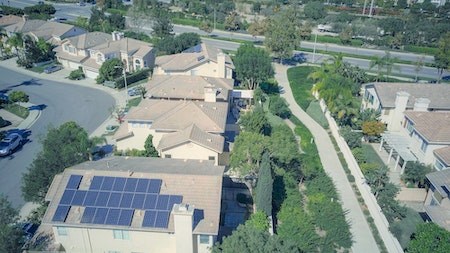There is much confusion surrounding sectional title ownership and cluster
ownership. Both types of complexes look and feel the same and when purchasing a
unit in one of these developments it is important to understand the difference
between the two types of ownership.
What is sectional title ownership?
Sectional title ownership was only introduced into the South African market in
June of 1986 providing a better form of title for apartments, previously only
able to be owned in a shareblock. Sectional title provides that you can own the
improvements on the property, without owning the property itself. It is a much
more acceptable security for the banks and home loans can be obtained fairly
easily for both existing sectional title properties and new developments.
Sectional title complexes are run by a body corporate and the operation of that
body corporate is regulated by law.
What are cluster complexes?
Cluster complexes on the other hand are held under "freehold" title, which means
that you not only own the improvements, but also own the land that the unit sits
on. There is a "homeowners association" which run and administer the complex on
behalf of the individual owners, and that association's operation is governed by
a set of rules agreed upon by the original owners of the units when they
purchased from the developer.
When the bank lends on any existing sectional title property they will always
call for a copy of the body corporate financials, to ensure that the complex is
solvent, the building is adequately insured, and not in arrears with rates and
taxes, etc. If the body corporate financials are not up to their standards, they
will decline the home loan.
Buying sectional title off-plan is most attractive because the price you pay
includes all the holding costs until the completed unit is transferred into your
name.
A CLUSTER on the other hand will most often be packaged as a land sale
with a building contract. This means that you will pay the holding cost while
the unit is being built, not only on the land, but also on the amount paid out
to the developer as the construction progresses.
Once the first transfer has gone through in a new development, the owners will
need to form a body corporate to run the complex, often in conjunction with the
developer until such time as the last transfer has been affected. The developer
is obliged by law to initiate the inaugural meeting of the body corporate and to
hand over all financial documents to the newly-formed body corporate. A body
corporate must initially establish rules for the management of the complex and
determine what levies will be charged per unit.
More about Sectional Title ownership
Although you always own your actual improvements or top structure, there is
another form of ownership of areas called exclusive use. These are most often
parking bays and gardens that are literally for the "exclusive use" of the owner
of a particular unit. Although the right to these exclusive use areas is passed
from owner to owner, it is not part of your title. These exclusive use areas
lumped together with other parts of the property such as the driveway and
communal pool facilities are referred to as 'common property' and are jointly
owned by all the unit owners depending on the size of your unit. The amount of
this space that you own is referred to as the PQ, or Participation Quota, and
all expenses are divided up and split according to this number.
Rules apply, always
Potential buyers should be aware that in purchasing either sectional title or
freehold cluster homes, the rules can be legally imposed. Often there is a
restriction on animals, so if you have dogs or cats make sure they will be
allowed in that particular complex. There are many other rules which may not
suit your lifestyle, which is why it is wise to read these rules before you
purchase. ALWAYS ask for the Management Rules regardless of whether you are
buying into a sectional title or cluster development before you buy and ask for
the financial statements. The bank certainly will.
Lastly, it is important to realise that the trustees of any body corporate have
the authority to act on your behalf in nearly all matters concerning the running
of a complex. The trustees are not paid for their efforts, and their work is
voluntary. If you want to get things done and be in a position to influence
decisions, then get involved!




